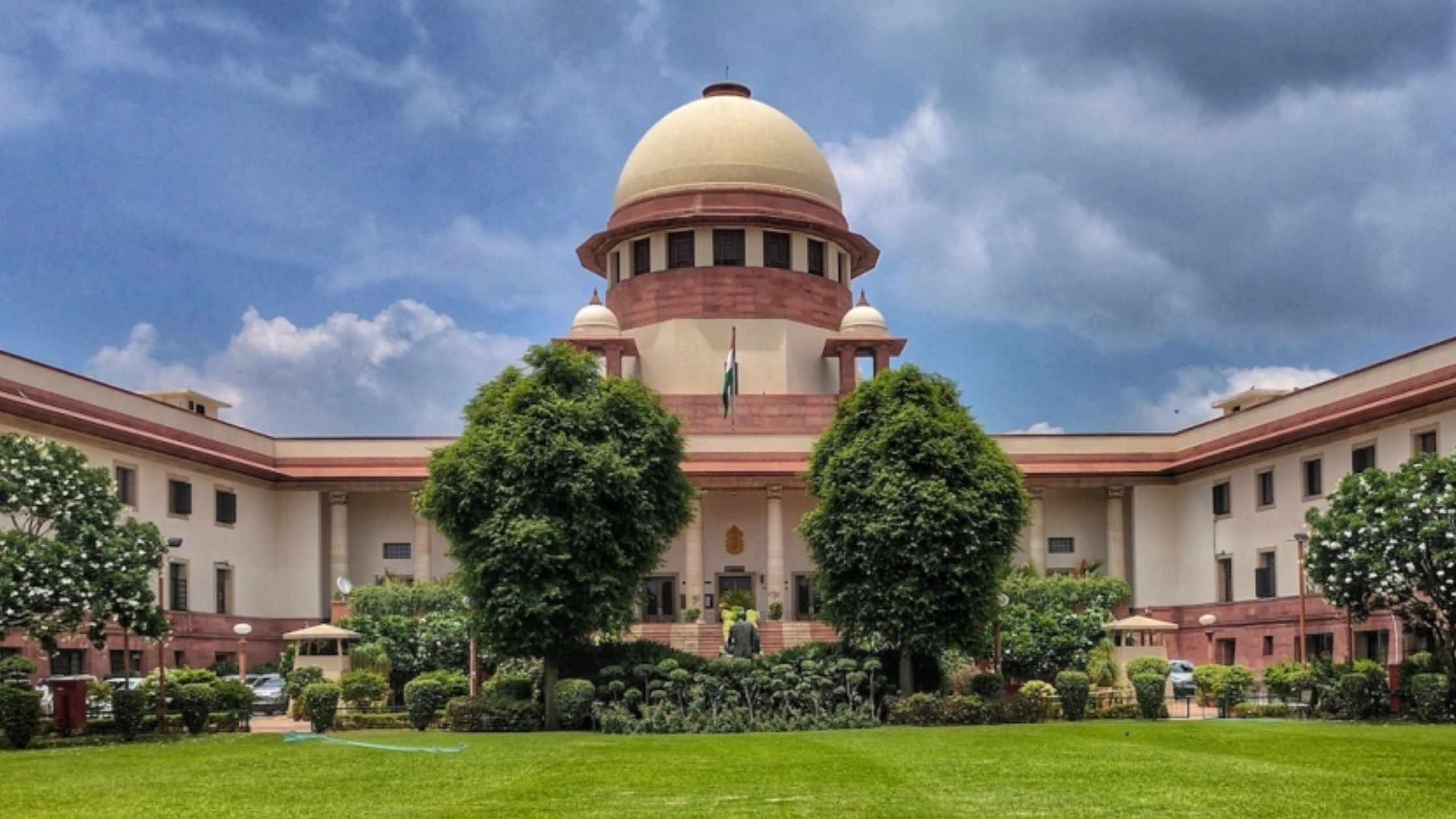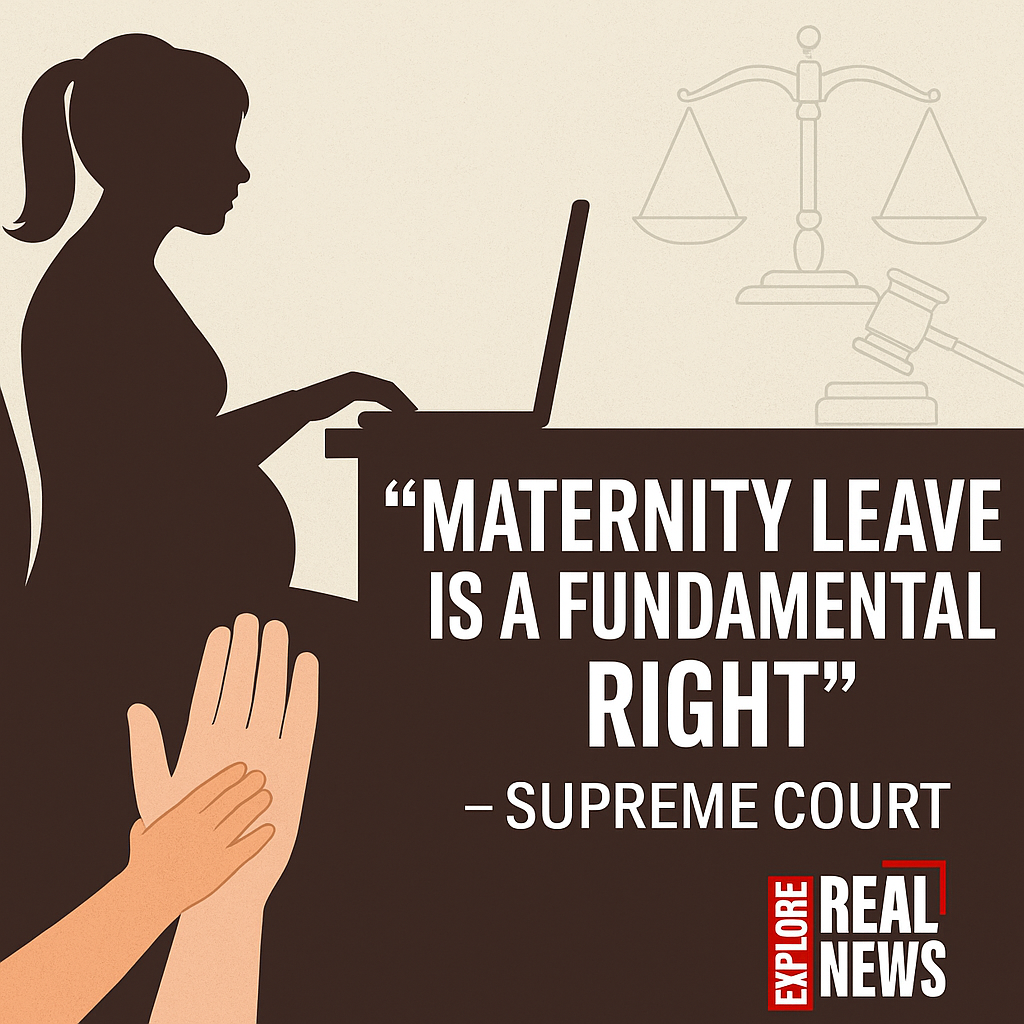Maternity Leave Is a Right, Not a Favor: Supreme Court Upholds Women’s Dignity in Historic Verdict
For millions of women in India, balancing motherhood and a professional career is a daily challenge. But in a historic ruling that brings hope and justice to working mothers across the country, the Supreme Court of India has declared maternity leave a constitutional right, even in cases involving a third child.
This landmark judgment isn’t just about workplace policy—it’s about compassion, fairness, and recognizing the unique needs of women who carry the immense responsibility of both building families and contributing to the nation’s workforce.
The Woman Behind the Verdict
At the heart of this case is a woman from Tamil Nadu—a government school teacher, a mother, and a fighter. After marrying for a second time, she gave birth to a child and applied for maternity leave. Her request was denied. Why? Because she already had two children from her previous marriage, and a state policy limited maternity benefits to just the first two.
But her story wasn't one of privilege. She hadn’t taken maternity leave for her first two children because she wasn’t employed at the time. She wasn’t trying to exploit the system—she was simply asking for what she needed during one of the most physically and emotionally demanding periods in a woman’s life.
Instead of accepting the rejection, she stood up for herself. And the Supreme Court stood with her.
What the Supreme Court Said—and Why It Matters
The bench of Justice Abhay S. Oka and Justice Ujjal Bhuyan saw this case for what it was: not a question of numbers or rules, but of basic rights, human dignity, and justice.
“Maternity leave,” the judges said, “is not merely a statutory concession. It is a constitutional right flowing from the right to life and dignity.”
This simple yet powerful statement marks a shift in how we view women in the workplace—not as secondary contributors or exceptions to the rule, but as equal citizens whose biological and emotional needs deserve understanding, not punishment.
The court also emphasized that maternity leave is deeply connected to women’s reproductive rights—the ability to make choices about motherhood without losing professional support or legal protection.
Breaking the Myth: It’s Not About Counting Children
For too long, policies have treated maternity leave like a resource that must be rationed. But the Supreme Court rightly pointed out that reproductive health and support cannot be limited to a quota.
In the real world, every woman’s journey is different. Some marry young, some later. Some have children early, some after years of struggle. Some, like the petitioner in this case, start working only later in life.
Should a mother be denied care and rest just because her child doesn’t fit into a policy’s rigid formula? The court says no—and for good reason.
A Step Toward True Workplace Equality
This ruling sends a powerful message to employers, policymakers, and society: maternity is not a weakness; it’s part of life.
It acknowledges that:
- Women are not liabilities when they become mothers.
- Reproductive choices must be protected, not penalized.
- Supportive policies lead to stronger, more loyal workforces.
This is especially important for public servants like teachers, nurses, and administrators—women who serve the public every day, often while managing families of their own.
A Personal and National Victory
For the woman who filed this case, the judgment is more than a legal win—it’s a validation of her experience, her motherhood, and her voice. And for the countless women across India facing similar challenges, it is a beacon of hope.
Thanks to her courage, and the wisdom of the country’s highest court, maternity leave is no longer just a benefit—it is a right born out of empathy, equality, and the Constitution itself.
Conclusion: Because Every Mother Matters
This ruling isn't about legal jargon or red tape. It’s about real women with real stories—women who carry life, nurture it, and still show up to work, teach, build, heal, and lead. It’s about recognizing that motherhood should be respected, not restricted.
India has made a significant and audacious move. Now, it’s up to all of us—employers, lawmakers, communities—to follow that lead and build a future where every woman feels supported, not sidelined, for choosing to be a mother.
We'd Love to Hear From You
Do you think the Supreme Court's ruling will bring real change for working mothers in India? Have you or someone you know faced challenges with maternity leave policies? Share your feedback here.
Share your thoughts, experiences, or questions in the comments below. Your voice matters—and it may inspire others who are navigating similar journeys.
Stay informed: For more updates on women’s rights, workplace equality, and landmark legal decisions, subscribe to our blog or follow us on facebook, Instagram, Linkedln and twitter

